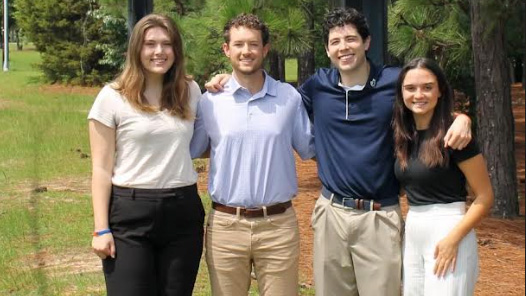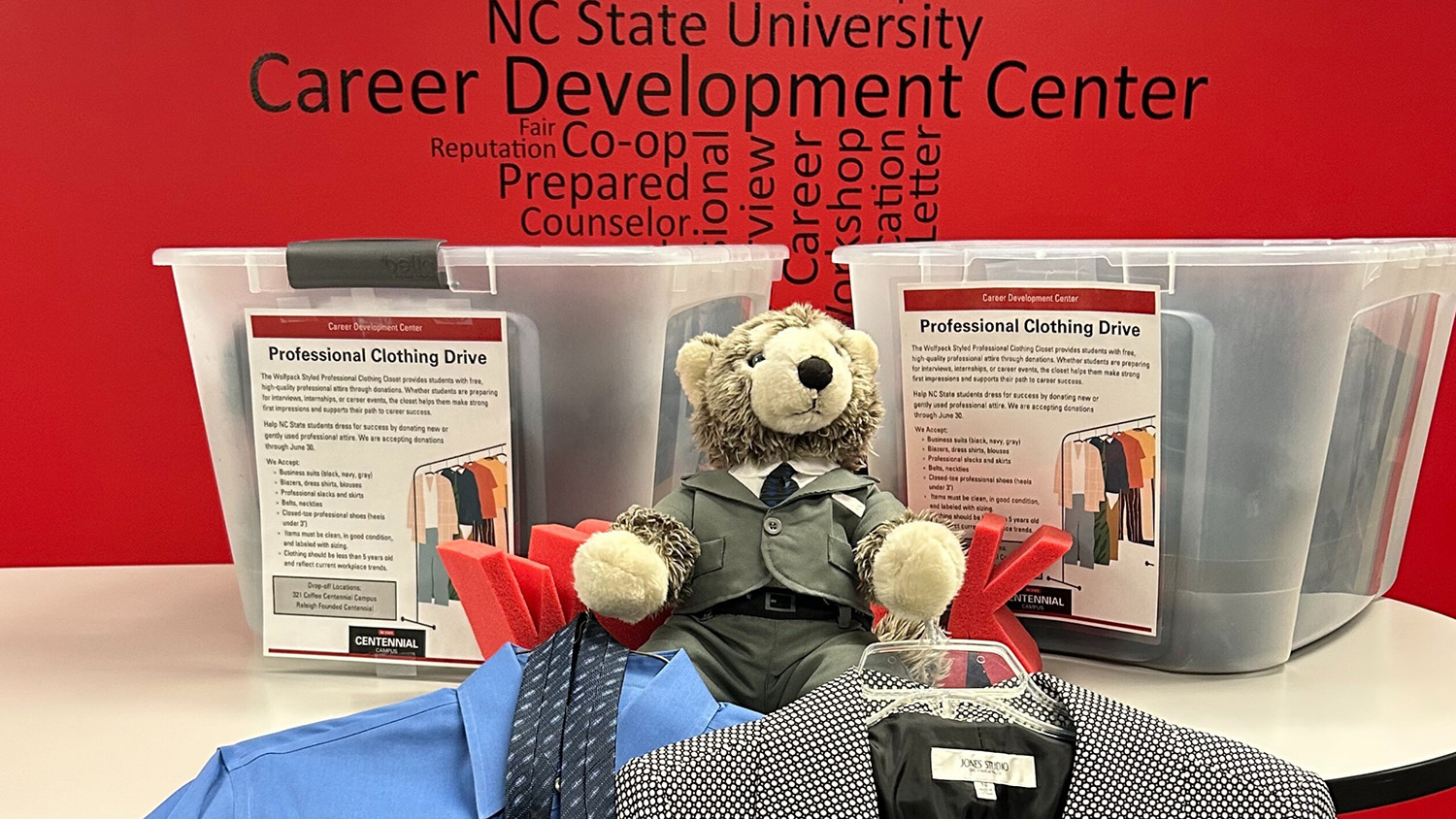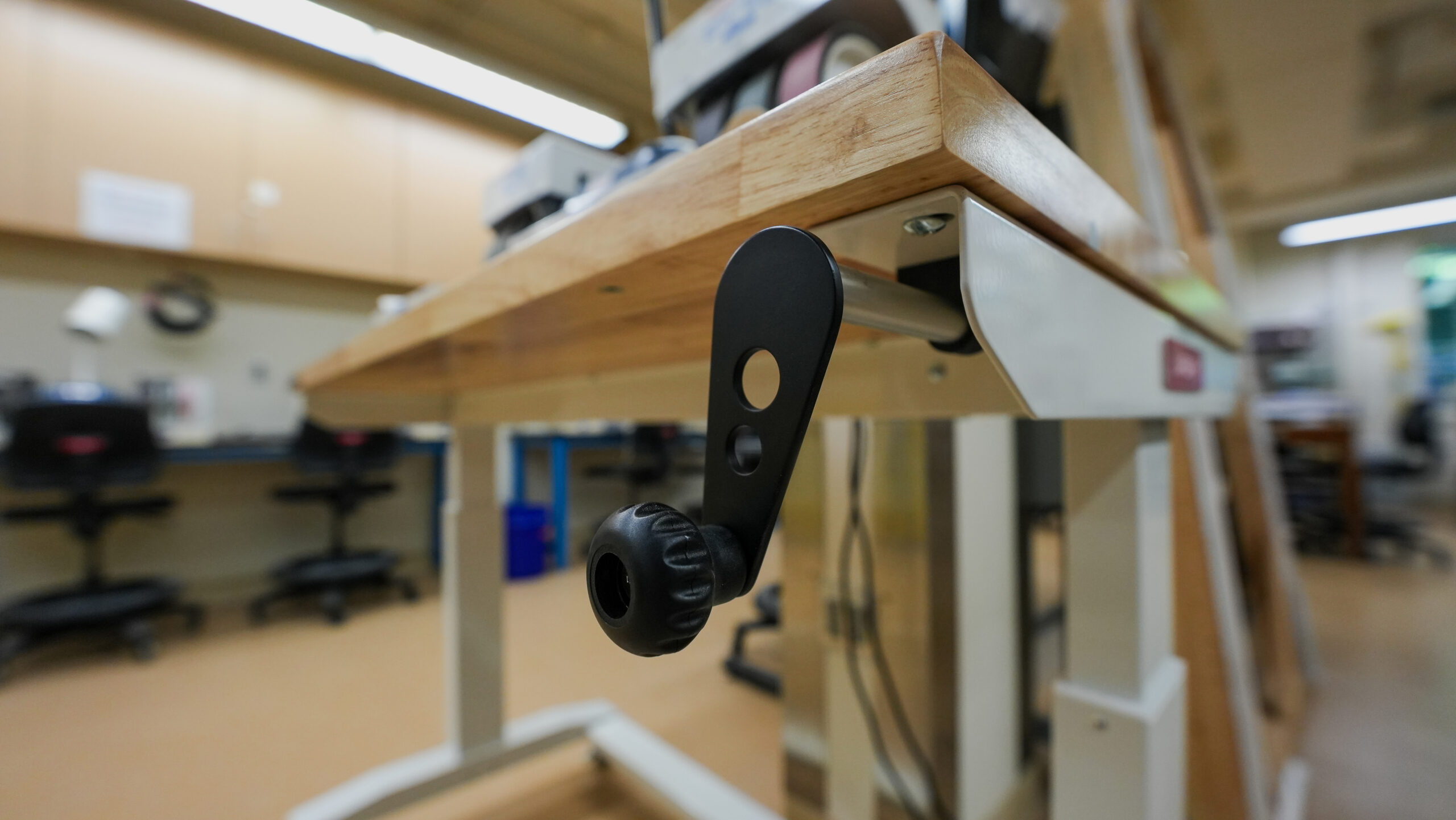Spotlight on our Students: Natalie Sherwood
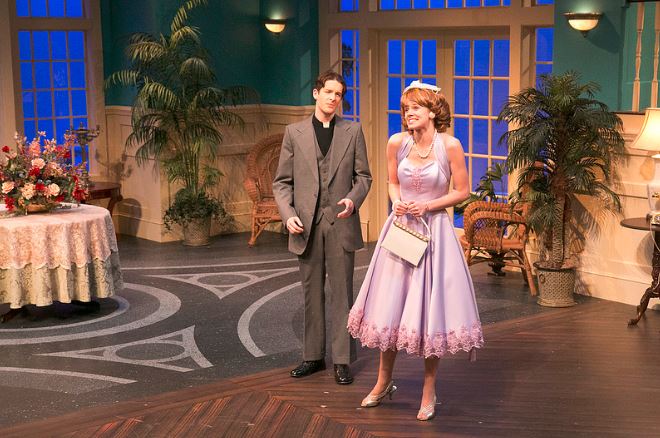
[lead]In this edition of Spotlight on Our Students, we had the pleasure of speaking with Natalie Sherwood about her experiences performing with University Theatre.[/lead]
Natalie is a senior University Scholar from Raleigh, NC majoring in Polymer and Color Chemistry. During her time at NC State, Natalie performed in several shows and recently wrote a piece that will be performed during the Spring 2019 semester. Read on to learn more about her acting to date and where she sees herself in the future in this interview by the University Scholars Program (USP).
USP: How did you first get involved in University Theatre? How many performances have you been a part of?
NS: I first got involved with University Theatre my fall semester as a first-year student. My first week at NC State, I auditioned for Arcadia by Tom Stoppard and was surprised to be cast in my first leading role. I found a creative family there, and I’ve been lucky to have performed in eight shows, taken part in at least three staged readings, and found myself backstage overseeing wardrobe and even designing sound.
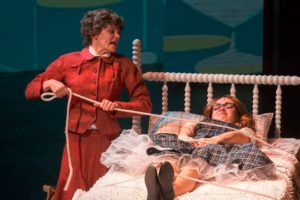 USP: That’s quite a lot of performances. University Theatre will soon be showcasing an original piece you wrote yourself, A Good Little Rain; what inspired you to write your own play?
USP: That’s quite a lot of performances. University Theatre will soon be showcasing an original piece you wrote yourself, A Good Little Rain; what inspired you to write your own play?
NS: I heard of the Creative Artist Award and had friends who found success in participating. I found inspiration in my late mother’s memory and a stash of personal poetry I had cultivated over the years. A simple scene exercise in an acting class that explored mental health catalyzed the vision in my head and it blossomed from the beginning.
USP: What have you learned from both your performances and writing your own play?
NS: So much! Certainly, my communication skills have grown tremendously, but the greatest lesson I’ve absorbed has been the value of vulnerability. As an actor and writer, the more I’ve opened my heart and shared my struggles and emotions, the more I’ve connected with people — even with strangers occupying an audience for just a night. I’ve grown comfortable with the parts of myself I used to hide away. My confidence, self-esteem, and relationships have been endlessly enriched for it.
USP: What do you hope to accomplish by telling this story?
NS: This piece of writing was one that offered me immense catharsis and healing; my primary wish is that its audiences walk away with a similar experience. I hope people grow to understand they are not alone in the chaos of life, even their darkest moments can be understood by someone out there in the world. Truly, I want to lessen the burden of the stigma that envelopes the subject of mental health and to invite meaningful dialogue around it because it’s essential to our well-being.
USP: What is one of the most challenging aspects of performing in your opinion?
NS: Self-judgement is the most formidable opponent in the realm of performance. All of us have an “inner critic” who whispers in our ear that we can’t do it, that we shouldn’t even try, that the choice we made was wrong. Learning to create a healthy distance from that voice is essential to unhindered performance; I’ve learned to thank it for reminding me that my mind isn’t wholly present and to breathe back into a receptive head space to keep produce honest work.
USP: How has your time in the USP prepared you for theatre or writing your own play?
NS: My time in USP has allowed me to encounter performance art in its innumerable forms and to embrace how unique each piece can look. Through USP, I’ve seen spoken word pieces paired with rhythm and dance, modern dance, theatre abstracted from its original context, and theatre pieces that challenge social norms and ubiquitous thinking. I owe quite a bit of my arts appreciation to my opportunities through USP because I feel empowered to make a piece of writing something one would never quite expect.
USP: What do you want to tell other University Scholars about how to follow their dreams?
[pullquote color=”wolfpackred” align=”alignright”]Seek out what inspires you, what sets your heart on fire, what keeps you up at night wishing it was your daily vocation.[/pullquote]
NS: Seek out what inspires you, what sets your heart on fire, what keeps you up at night wishing it was your daily vocation. Dismiss what the world expects of you. Allow yourself to change your mind when your dreams become something you didn’t once anticipate. Surround yourself with people who listen to the music in your voice when you speak of your passions and sing along. Bottom line: if something makes you feel alive, it’s worth it.
USP: What’s the best bit of advice you’ve ever received?
NS: In the past two years or so, I’ve been gently exploring Buddhist philosophy regarding mindfulness and openness. I read somewhere that “self-discipline is empathy for your future self.” It framed self-regulation as a compassionate practice when we usually think of it as confinement, as correction. I’ve been working to recall this lesson whenever I struggle to find motivation or forget to take care of myself amidst the busyness of life. So far, I’ve found it to be just the nudge I need to keep moving.
